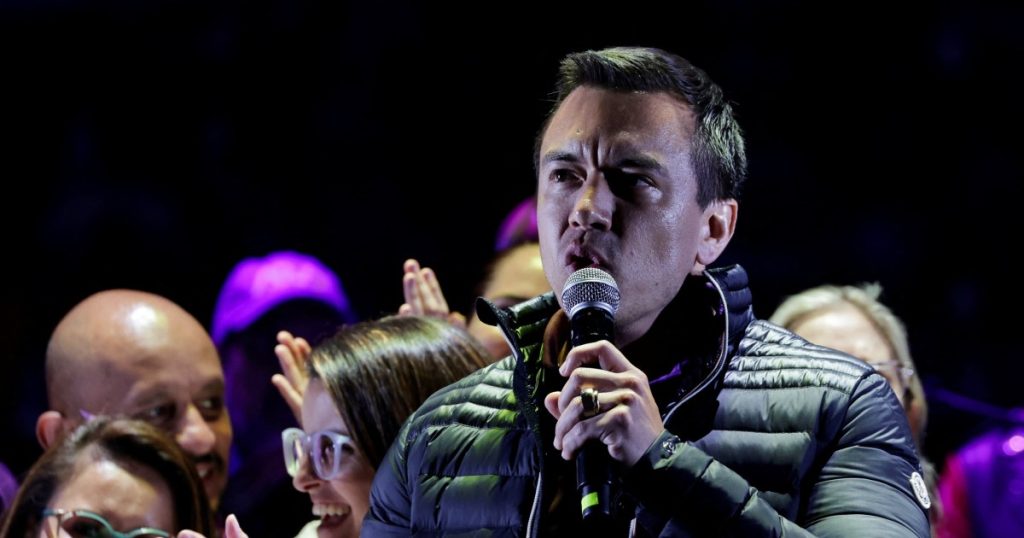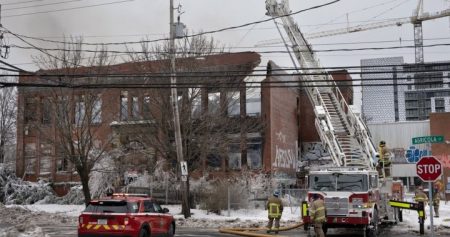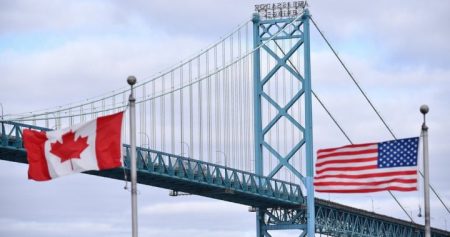Navigating the Storm: Noboa’s Controversial Campaign and the Battle for Ecuador’s Presidency
Executive Decrees and Constitutional Showdown
Ecuador’s President Noboa has found himself at the center of a political storm as he nears the end of his latest campaign for re-election. The Ecuadorian constitution is clear: public officials must take a leave of absence when running for re-election. However, Noboa has chosen a different path. Instead of stepping aside and transferring power to his vice president, Veronica Abad, Noboa signed two executive decrees in an effort to maintain control. This move has sparked intense controversy, as it appears to bypass the constitutional requirement. The situation escalated further when the Constitutional Court of Ecuador declared both decrees unconstitutional, ushering in a new wave of criticism aimed at Noboa’s leadership style. The court’s ruling has cast a shadow over Noboa’s campaign, raising questions about the limits of his authority and his commitment to democratic norms.
Indigenous Communities Speak Out: A Scathing Rebuke
The Confederation of Indigenous Nationalities of Ecuador (CONAIE), a powerful and influential Indigenous rights coalition, has been quick to condemn Noboa’s actions. In a strongly worded statement, CONAIE accused Noboa of treating the presidency like “a private hacienda,” implying that he is running the country as if it were his personal estate. The group emphasized that Noboa’s government is riddled with irregularities, abuses, and a blatant disregard for democratic principles. Zenaida Yasacama, the acting president of CONAIE, expressed her personal disappointment, stating that Noboa’s treatment of his vice president has been particularly hurtful. “We have never trusted this government,” Yasacama told Al Jazeera, reflecting the deep-seated distrust that many Indigenous communities feel toward Noboa’s administration. CONAIE’s strong stance highlights the broader concerns about Noboa’s leadership and his willingness to bend the rules to maintain power.
A Campaign Built on Anti-Establishment Rhetoric
Despite the mounting criticism, Noboa has pressed on with his campaign, positioning himself as a leader determined to declare war on “the old politics” of Ecuador. His campaign advertisements feature him dressed casually in a white T-shirt against a purple backdrop, alongside slogans such as “one single round.” This informal imagery is carefully crafted to appeal to Ecuador’s younger generations, a demographic that has shown significant support for Noboa. Garcia Nice, a political analyst, explains that young voters are drawn to Noboa’s charisma and the sense of change he represents. Some young supporters have even gone as far as carrying cardboard cut-outs of the leader, underscoring the emotional connection he has managed to establish with this segment of the population. In a country where the average voting age is 28 and 16-year-olds are eligible to vote, this demographic could prove to be a decisive factor in the election.
The Youth Factor: A Double-Edged Sword
Noboa’s ability to connect with young voters is undeniably one of his greatest strengths. However, political analyst Hurtado warns that Noboa’s charisma alone will not be enough to sustain his political career in the long term. If Noboa succeeds in winning a full four-year term, he will no longer be able to rely on the goodwill often afforded to political newcomers. The public’s expectations will rise, and Noboa will be held accountable for delivering on his promises. “If he doesn’t resolve the country’s big challenges, his popularity will decline,” Hurtado cautioned. This sentiment reflects a broader understanding that while Noboa’s appeal to young voters is a powerful tool, it is not a guarantee of long-term success. The president will need to demonstrate tangible results if he hopes to maintain his support base and consolidate his position as a leader.
The Constitutional Court’s Ruling: A Blow to Noboa’s Ambitions
The Constitutional Court’s ruling on Noboa’s executive decrees has dealt a significant blow to his campaign. By declaring both decrees unconstitutional, the court has effectively undermined Noboa’s attempt to circumvent the law and maintain control. This decision has reignited the debate over the limits of presidential power and the importance of adhering to constitutional norms. For Noboa, the ruling is a reminder that his actions are under scrutiny, both from the judiciary and from the public. The court’s intervention has also provided ammunition for Noboa’s critics, who argue that his willingness to disregard the constitution is a clear indication of his authoritarian tendencies. As the election approaches, the fallout from this ruling could have a lasting impact on Noboa’s chances of securing a second term.
The Road Ahead: Challenges and Uncertainty
As Ecuador approaches the upcoming election, the political landscape remains fraught with uncertainty. Noboa’s campaign has been marked by controversy, and the Constitutional Court’s ruling has cast a shadow over his bid for re-election. Despite these challenges, Noboa remains a formidable candidate, particularly due to his appeal to young voters. However, the road ahead will be far from easy. If Noboa wins a second term, he will face immense pressure to deliver on his promises and address the country’s pressing issues. Failure to do so could lead to a decline in his popularity and further erosion of trust in his government. For now, all eyes are on the election, as Ecuadorians prepare to decide the direction of their country. The outcome will have far-reaching implications, not just for Noboa’s political future, but for the future of Ecuador as a whole.












